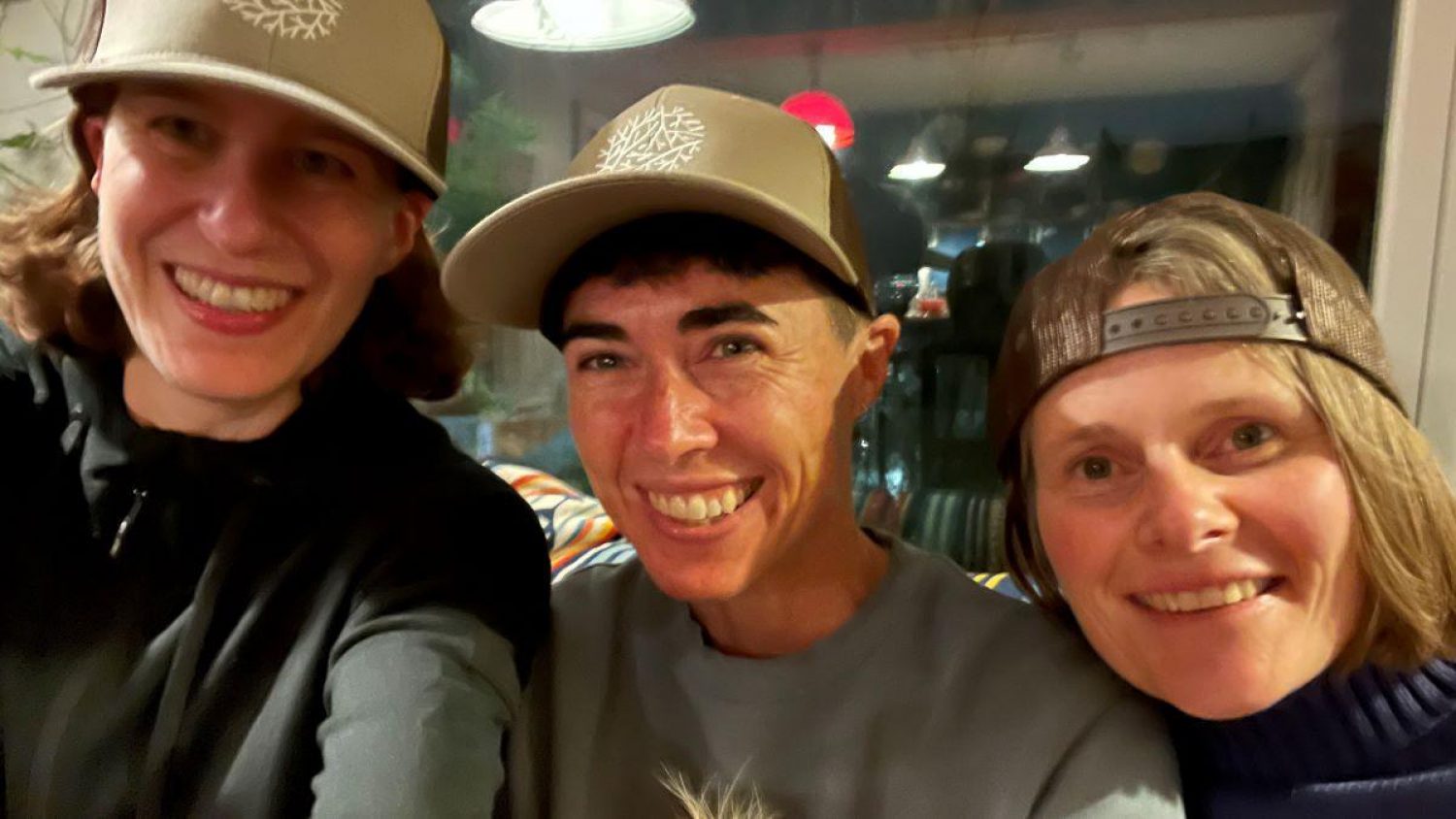Four minute read
Watch Poppy's CEO, Clare Montagu, explain human composting on TalkTV
Founder Poppy Mardall (above right) and CEO Clare Montagu (above left) visited Recompose’s first human composting facility to see for themselves how this new technology, rooted in natural processes, could transform death care.
Poppy explains how our relationship with Recompose began and the difference that this visit made to her.
When I launched Poppy’s in 2012, I was hungry to find others who shared my sense that death care could be so much more than it was. More meaningful, more transparent, more thoughtful and more in tune with nature.
I met Katrina Spade (above centre) in Seattle in 2014 and she opened my eyes to a whole new vision of what was possible. Katrina told me about the Urban Death Project.
She explained how she planned to research, test and deliver a service which would compost you when you die. It would turn your body into soil which could be given to family and friends, or donated to enrich the earth.
Read more about Katrina's vision for Recompose.
‘When we die, we go back to the earth’
What she was describing sounded both miraculous and beautiful. It showed us what we so often struggle to remember — we are entirely part of the natural world. When we die, we do what all living things do, we go back to the earth.
Katrina and I kept in touch. The Urban Death Project became Recompose. I was deeply excited to hear about Katrina’s plans to open the doors and accept clients in December 2020, despite the impact of the global pandemic.
A year later, our new CEO Clare Montagu joined Poppy’s. She shared my excitement about this new technology. Could Poppy’s longer term future include supporting something like this in the UK? We had to see the process for ourselves.
Find out from Morgan, Recompose’s Service Manager, what the Recompose process involves.
‘A beautiful and functional process’
On our first day in Seattle, we visited the Recompose facility with Katrina. We’d return again the following day to meet the team and see the process in action.
Katrina has spent ten years developing her work. There are many people imitating her approach in the US, but often without her ethical basis.
She treads an impressive line between transparency about the process for her clients, and protecting the development work she’s done. It felt like a great privilege to be given full access behind the scenes and freedom to ask all the questions we wanted.
As Katrina walked us through the process from beginning to end. I was immediately struck by how beautiful and functional it was — a combination that my practical mind finds deeply reassuring.
‘When I saw it for myself, I felt emotional and overwhelmed’
There was nothing to hide here — not one façade for the media and another for reality. It was a middle-sized space on a light industrial estate, beautifully branded, with necessary trolleys and lightweight machinery. Centre stage were the white, hexagonal, steel vessels, laid out in a honeycomb design, in which the Recompose process takes place.
The smell was normal. I’m used to working and being in mortuaries and I know how a space smells when people are being cared for well.
But, by far the most powerful experience was when Katrina opened the door of a vessel where the process had just completed. The gentleman who had been placed in there — let’s call him Tony — had his name clearly marked on the door.
I am a total stickler for the details when it comes to how the dead are treated. Poppy’s was built out of rage and frustration that death care has become so inhuman. I am highly sensitive to any act or process or words that fall short of treating the person who has died as respectfully as you would when they were alive.
Katrina opened the door of Tony’s vessel and, my goodness, it was full of the most beautiful nutrient-rich soil.
I had known Katrina for eight years and I had followed Recompose from afar. But until I saw it for myself, my brain couldn’t fully conceive of this most natural of processes. I felt emotional and overwhelmed.
‘It felt good to immerse ourselves in nature’
Since our visit, Recompose has moved into a larger and more sustainable space, which we visited later that day. It’s designed with practicality and with the needs of grieving friends and family in mind.
We heard about plans for a beautiful ceremony area and for a room where people can come and wash or anoint their person.
The next day, we met the team. Like at Poppy’s, Katrina has built a team of people united by a total commitment to doing this work with humanity. We heard about their experiences and talked about our own similar challenges and perspectives at Poppy’s.
The trip was also a great opportunity for Clare and I to get to know each other better and to sync our shared ambitions for Poppy’s and for transforming death care.
We took the chance to have some freezing swims in the Puget Sound and in the early morning darkness of Lake Washington. It felt good to immerse ourselves in nature — our experiences with Recompose reminding us just how connected we are with the natural world. The cold also neutralised some of the over-excitement the visit had unleashed in us!
We both returned to London enriched and energised. We have much work to do at Poppy’s, but we retain a deep interest in bringing a service like Recompose to the UK — when and if the time is right.
Find out about water cremation, natural burial and other options for a more eco-friendly funeral.
To stay in touch with all the latest news and updates from Poppy's by email, sign up here or contact us if you need help planning a funeral.

